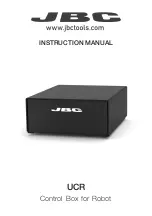
PBX Networking
Types of Point-to-Point Connections
132
Point-to-point connection via a public network
12.2.4 Connection via Q.SIG.IP
If you are operating a fast and continuous internet connection at two or more
locations, you can establish the TK system networking via internet connection as
well. The OpenCom 100 uses the Q.SIG protocol, for use with ISDN point-to-point
connections and transports the protocol and voice data via IP connections.
The number of simultaneous conversations possible will depend on the capacity
of the internet connection and the compression method used. A multiple S
2M
point-to-point connection is simulated for each Q.SIG-IP bundle. This means that 5
virtual D channels and up to 120 voice channels are available. Both Media Gateway
Card channels and the Media Gateway software function can be used for Q.SIG-IP.
Q.SIG-IP connection data are subject to codec compression (please refer to
Voice
over IP (VoIP)
chapter regarding
Fundamentals
starting on page 100). Q.SIG-IP also
transfers the voice data directly from terminal to terminal via the RTP protocol. In
certain cases, for example, when an incoming external call is placed via multiple TK
systems, one or more RTP proxies may be used to forward the connection.
Currently, there are no standards for the necessary extensions to the Q.SIG pro-
tocol. This means that you can only use Q.SIG-IP between OpenCom 100 systems
(exception: OpenCom 1000).
Networking two OpenCom 100 systems using Q.SIG-IP requires 2 licenses – one
license per system. The number of possible voice connections is not restricted by
the license.
Go to the
PBX Configuration
:
Trunks
:
Bundle
page in the
Configurator
to set up
a Q.SIG-IP connection. Create a new bundle and select the
Access type
“System
Access”. Select “Q.SIG-IP” under
Protocol
. Configure the IP address of the other
system, the port numbers to be used, the number of possible voice connections
and select a VoIP profile for the codec selection. Please refer to the relevant help
topics in the Online Help for the OpenCom 100 as well.
PBX 1
L1 slave
L2 slave
L3 master
PBX 2
L1 slave
L2 slave
L3 slave
Public
network
L1 master
L2 master
Summary of Contents for OpenCom 130
Page 1: ...130 OpenCom100 131 150 Mounting and Commissioning User Guide ...
Page 10: ...8 ...
Page 202: ...Index 200 Notes ...
Page 203: ......
















































